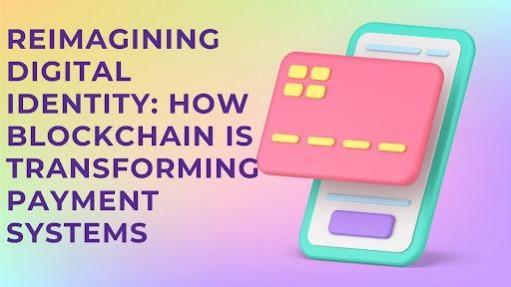
In his recent paper, Blockchain-Powered Decentralized Identity: Revolutionizing the Payment Ecosystem, Hirenkumar Patel explores how blockchain is reshaping the very foundation of identity in financial transactions. An expert in financial technology, He presents a compelling case for rethinking digital identity infrastructure.
A New Dawn for Identity Management
Traditional identity systems in finance are fraught with vulnerabilities centralized databases, outdated authentication methods, and privacy trade-offs. Blockchain technology introduces a decentralized alternative that disperses data across networks, dramatically lowering the risk of breaches. By removing single points of failure, this approach enhances resilience, security, and trust in digital identities.
Building Trust with Cryptographic Immutability
At the heart of blockchain's appeal is its immutability. Once recorded, identity data cannot be altered without consensus from network participants. This cryptographic assurance creates a tamper-proof audit trail that benefits regulators, investigators, and consumers alike. It reduces the average time to detect fraudulent activity and curtails insider threats by making unauthorized data manipulation virtually impossible.
Empowering Users Through Self-Sovereign Identity
One of the paper's central themes is Self-Sovereign Identity (SSI) a user-centric model where individuals manage their personal data through digital wallets. These wallets store cryptographic keys and verifiable credentials, enabling users to share only the minimum information required for verification. This minimizes data exposure while maintaining the integrity of transactions, a game-changer for privacy-conscious consumers.
The Rise of Verifiable Credentials
Verifiable credentials serve as digital stand-ins for traditional ID documents, offering stronger security and greater flexibility. Issued by trusted entities and stored in user-controlled wallets, these credentials allow seamless verification without real-time contact with the issuer. The system facilitates cross-platform validation and supports a broad spectrum of financial services, from banking to cross-border payments.
Wallets That Do More Than Store
Modern identity wallets go beyond simple storage. They offer intuitive interfaces for managing consent, allowing users to control who sees what, and when. Features like selective disclosure enable verification of specific attributes age, residency, or account balance.
Reinventing KYC and Compliance
Know Your Customer (KYC) procedures are essential but often cumbersome. Blockchain-driven identity frameworks streamline compliance by reusing previously verified credentials across institutions.
Smart Contracts as Policy Enforcers
Automated and self-executing, smart contracts act as digital policy enforcers. These coded agreements define how and when data can be accessed or shared, embedding consent directly into the transaction flow. Smart contracts enhance transparency and ensure that privacy preferences are honored without manual oversight, fostering greater accountability and trust.
Fraud Reduction Through Mathematical Proof
The system's reliance on cryptographic proofs eliminates vulnerabilities associated with passwords and static IDs. Fraud schemes like synthetic identity creation become far less viable when every transaction is tied to cryptographically verified credentials.
Benefits for Every Stakeholder
Every participant in the payment ecosystem stands to gain. Financial institutions see lower fraud rates and improved compliance. Merchants enjoy smoother checkouts and reduced liability. Consumers benefit from stronger privacy controls, more convenience, and fewer data breach worries. The system's architecture ensures that everyone wins with no compromise on security.
Remaining Hurdles on the Path Forward
Despite its potential, decentralized identity systems face hurdles. Standardization is crucial to ensure interoperability across platforms. Regulatory frameworks need updating to accommodate decentralized data governance. Recovery mechanisms must strike a balance between accessibility and security. Finally, scalability remains a technical challenge, especially under high transaction volumes.
In conclusion in his analysis, Hirenkumar Patel emphasizes that decentralized identity is not a futuristic concept it's a present-day solution to long-standing issues in the payment ecosystem. As financial networks become increasingly digitized, early adopters of blockchain-based identity will gain significant advantages in security, efficiency, and user trust. While challenges remain, the foundation for a smarter, safer identity infrastructure has already been laid.












!['Valentine's Week in Parliament'? : Saugata Roy, June Malia's cosy conversation amid house session goes viral [Watch]](https://data1.ibtimes.co.in/en/full/828484/valentines-week-parliament-saugata-roy-june-malias-cosy-conversation-amid-house.jpg?w=220&h=138)




